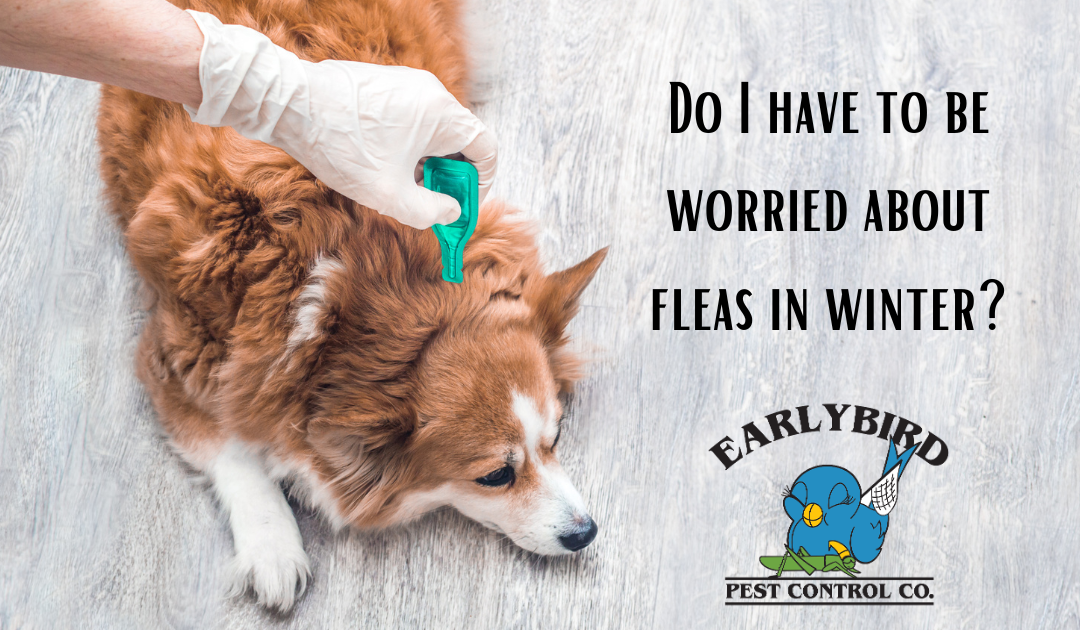Fleas are tiny insects that feed on the blood of animals and humans. They are commonly associated with warmer weather, but can fleas survive in winter? Do you need to worry about fleas in winter? This article will provide you with a comprehensive and detailed answer to these questions.
Fleas in Winter: Can They Survive?
Fleas are ectoparasites, which means they live on the outside of their host’s body. They are capable of surviving in a wide range of temperatures, from freezing to hot and humid. However, their survival in winter largely depends on their life stage.
Adult fleas are the most resilient to cold temperatures. They are able to survive for weeks without a host and can tolerate temperatures as low as 37°F (3°C) for short periods. However, their eggs, larvae, and pupae are less able to survive cold temperatures.
Flea eggs are laid on the host’s fur and fall off into the environment, such as your home, where they hatch into larvae. Flea larvae are the most vulnerable life stage to cold temperatures. They cannot survive in temperatures below freezing, and they prefer temperatures between 70-85°F (21-29°C).
Once flea larvae spin cocoons to become pupae, they are better able to withstand colder temperatures. Pupae are also capable of remaining dormant for several months, waiting for optimal conditions to emerge as adult fleas. So, while adult fleas are the hardiest, fleas in all life stages can potentially survive in winter.
Why Fleas Can Be a Problem in Winter
Although fleas are less active in winter, they can still be a problem for several reasons.
Indoor Living: In winter, pets and humans spend more time indoors where flea eggs, larvae, and pupae can survive and thrive. Your home can provide the perfect environment for fleas to continue their life cycle, especially if the temperature is maintained between 70-85°F (21-29°C).
- Central Heating: Central heating can create a warm environment in your home that is conducive to flea survival. Fleas can lay eggs and continue their life cycle in carpets, bedding, and upholstery, which can be difficult to treat.
- Migration: Wildlife, such as rodents, can carry fleas into your home during winter seeking shelter from the cold. Fleas can also hitch a ride on pets when they go outside to relieve themselves.
- Resurgence: Flea infestations can be difficult to eradicate completely. If you have had a flea infestation in the past, the pupae can lay dormant in your home and reemerge as adult fleas when conditions become favorable.
How to Prevent Flea Infestations in Winter
Preventing flea infestations in winter is essential for the health and comfort of your pets and family. Here are some tips to help prevent fleas from taking hold in your home:
- Keep Your Home Clean: Vacuum carpets, rugs, and upholstery regularly to remove flea eggs and larvae. Wash bedding, blankets, and pet beds frequently in hot water to kill fleas and their eggs.
- Treat Your Pets: Use flea preventive treatments on your pets year-round to prevent infestations from taking hold. Consult with your veterinarian to choose the best flea preventive for your pet’s individual needs.
- Monitor Wildlife: Seal cracks and holes in your home to prevent rodents and other wildlife from entering. Keep bird feeders away from the house to discourage wildlife from congregating near your home.
- Seek Professional Help: If you suspect you have a flea infestation, seek professional help from a pest control specialist. They can identify the source of the infestation and provide effective treatment options.
Conclusion
While the risk of flea infestations may be lower in winter, it’s still important to remain vigilant and take steps to prevent infestations from taking hold. Fleas can survive in winter, and they can be a nuisance and a health risk to both humans and pets. By following the tips outlined in this article, you can protect your home from flea infestations and ensure that your pets and family stay healthy and comfortable throughout the winter season.
More Tips for Homeowners:
-
- 4 Signs You Have Bed Bugs
- How to Get Rid of Cockroaches
- How to Get Rid of Rats
- How Do I Know if I Have a Scorpion Infestation?
- How Do I Know if I Have a Bee or Wasp Nest in My House?
- How Do You Know if You Have Mice or Rats?
- Do I Need a Professional to Remove Tarantulas?
- 5 Ways to Keep Pests out of the Office
- How Ants Ruin your Home
- Can Pests Destroy Stucco?
- Pros and Cons of a Stucco Home
- Does Arizona Have a Cockroach Problem?


Recent Comments